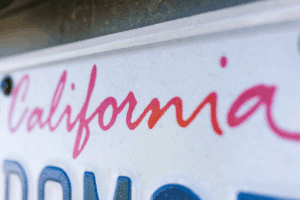California Uber and Lyft Regulations & Requirements
Ridesharing has seen explosive growth in California, with more than 300,000 rideshare drivers in the state and high concentrations of rides in urban areas. As an increasingly popular mode of transportation, it’s crucial for drivers, passengers, and others on the road to understand the rideshare legal framework and how an accident can affect them. Our comprehensive Cutter Law guide explains essential California Uber and Lyft requirements and legal developments throughout the state.
- The California Public Utilities Commission sets regulations for rideshare companies and drivers in the state.
- Uber and Lyft drivers must have a valid California license, pass a vehicle inspection, and meet other requirements.
- Assembly Bill 2293 requires rideshare companies to provide liability insurance when drivers are using the rideshare app.
- Under Proposition 22, rideshare drivers are independent contractors and have some protections and benefits under the law.
- A California rideshare accident lawyer can help victims who are sexually assaulted in the vehicle or injured in a crash.
How Rideshare Services Are Regulated in California
The California Public Utilities Commission (CPUC) primarily oversees and regulates transportation network companies (TNCs), such as Uber and Lyft. The state’s documents, decisions, and rulings related to TNCs are made through the CPUC. However, local municipalities and city governments may impose additional requirements for rideshare companies and drivers.
According to the CPUC, Uber and Lyft car requirements in California include the following:
- Have at least four doors
- Have five to eight seats, including the driver’s
- Not be classified as salvage or non-repairable
- Display the TNC trade dress in the front and the rear of the vehicle
Additionally, the California Department of Motor Vehicles (DMV) requires proper vehicle registration and insurance coverage for rideshare drivers to legally operate their vehicles.
It’s crucial for rideshare drivers to comply with state-level insurance requirements and safety mandates to protect themselves and passengers if an accident occurs.
Uber and Lyft Driver Requirements in California
Lyft and Uber driver requirements in California are set by rideshare companies to comply with state regulations. While there may be slight differences in Lyft vs. Uber driver requirements, most driver qualifications are similar across TNCs in California.
Minimum requirements for Lyft drivers and Uber drivers in California include:
- Having a valid California driver’s license
- Being at least 25 years old
- Completing a full driver screening and criminal background check
- Having a smartphone that can run the TNC application
- Adhering to limits on the number of hours driven
- Passing a 19-point vehicle inspection
- Providing proof of personal auto insurance coverage
If you logged your first trip before September 12, 2024, you may be a rideshare driver under 25 years old with 3 years of licensed driving experience. However, the new minimum age to transport passengers for Uber or Lyft in California is 25.
Insurance Coverage Rules for Uber and Lyft in California
Uber, Lyft, and other TNCs are required by Assembly Bill 2293 to provide primary third-party liability insurance when the driver is active on the app. The following rideshare insurance coverage applies to different periods of app use.
Period 0: Rideshare App Is Offline
All California rideshare drivers need to have their own auto insurance coverage for daily personal driving. TNCs do not cover drivers who are not logged into the rideshare app.
Period 1: Waiting for a Trip
During Period 1 when the rideshare app is on and the driver is waiting to receive a ride request, TNCs must provide:
- $50,000 per person for bodily injury
- $100,000 per accident for bodily injury
- $30,000 per accident for property damage
Under the law, Uber and Lyft are also required to maintain $200,000 of excess liability coverage in California. This coverage goes into effect for more severe California auto accidents.
Period 2: Picking Up Passengers
After accepting a ride in the rideshare app, the driver is in the next coverage period. TNC insurance coverage while driving to the pickup location includes:
- $1 million per incident in third-party liability coverage
- $1 million in uninsured motorist and underinsured motorist coverage
Period 3: During the Ride
Period 3 starts as soon as the rideshare driver picks up the passenger and continues through the duration of the ride. Liability coverage during this period is the same as Period 2.
TNC liability insurance covers passengers, pedestrians, and any others injured by the rideshare driver. Rideshare drivers must purchase their own comprehensive rideshare policy for additional coverage.
What Is Prop 22?
Passed in 2020, Proposition 22 in California gives rideshare drivers and other gig workers access to protections while maintaining their status as independent contractors. Key elements of Prop 22 include:
- Guaranteed earnings of 120 percent of California’s minimum wage
- Per-mile compensation for rideshare transportation and delivery drivers
- Quarterly health care stipend for qualified TNC drivers
- Occupational accident insurance that covers drivers and delivery people
Prop 22 was challenged by gig workers in 2021 who wanted access to full employee rights and benefits. They argued that independent contractor status did not give them workers’ compensation and other legal protections that employees in the state have. However, the California Supreme Court upheld Prop 22.
Rideshare drivers and others who are injured can speak with a California rideshare accident attorney to understand their rights and how to seek compensation for their losses through TNC insurance.

“So, if you’ve been sexually assaulted by an Uber or Lyft driver, you can take it to the police, and they will pursue a criminal case against the driver. In the meantime—and at the same time—you can also have a civil case against the company for employing that driver.”
– Attorney Celine Cutter
Safety Requirements for Uber and Lyft in California
California has several rideshare requirements designed to keep everyone safe on the road, including:
- Vehicle inspections by a licensed mechanic every 12 months or 50,000 miles
- Thorough driver background checks
- Mandatory rest periods for drivers
- TNC display stickers for verification and visibility
- Continuous location monitoring through the app
- In-app emergency button to connect to 911
What To Do If You’re Sexually Assaulted in a Rideshare Vehicle
If sexual assault occurs in your rideshare vehicle, take these steps to protect yourself:
- Try to safely exit the vehicle in a populated area.
- Use the rideshare emergency button when appropriate.
- Move to a safe location where you can connect with the authorities.
- Report the assault to the police and the rideshare company.
- Seek medical attention, even when you have no apparent injuries.
- Do your best to preserve evidence, including clothing.
- Speak with an Uber or Lyft sexual assault lawyer.
Both Uber and Lyft have a zero-tolerance policy for sexual misconduct and assault. A rideshare sexual assault attorney can explain your legal options and how to file a claim against the company.
How Cutter Law Can Help With Uber and Lyft Injury Claims
With knowledge of state-specific rideshare laws and experience handling multi-insurer cases, our team works together to help victims navigate changing legislation and seek the compensation entitled to them after a crash.
Family-owned, California-based, and client-focused. Contact us today for a free consultation with a trusted car accident attorney in Sacramento, Oakland, or Santa Rosa, CA. From what to do after a Sacramento car crash to how rideshare accident victims pursue compensation, our team is ready to help.
Frequently Asked Questions About Uber and Lyft Regulations
Our Sacramento and Oakland car accident lawyers answer commonly asked questions about rideshare regulations in California.
Are Uber and Lyft Drivers Employees or Contractors in California?
In California, Uber and Lyft drivers are considered independent contractors—not employees.
What Insurance Applies If a Rideshare Driver Hits Me?
If a rideshare driver caused your accident, you may qualify to recover losses through the rideshare company’s primary liability insurance.
Can I Sue Uber or Lyft for Negligence?
It’s possible to sue a TNC if you can prove the company was negligent. Consult a rideshare accident attorney or Lyft or Uber sexual assault attorney to see if you have a case.
Do Rideshare Drivers Get Workers' Compensation If Injured While Driving?
California rideshare drivers are considered independent contractors and generally do not qualify for workers’ compensation.
What Happens If I’m Injured As a Passenger in a Rideshare Vehicle?
Passengers injured in a rideshare accident can make a claim through the TNC’s liability insurance. However, victims may also qualify to bring a lawsuit to recover damages. Work with an attorney who knows local rideshare laws and has a track record of successful case results.

Drivers who break the law, violate safety statutes, or contribute to motor vehicle accidents can have these points assigned to their driver’s license.

After a car accident in California, you can file a claim by gathering evidence, contacting your insurer, and ensuring all necessary documentation is provided to support your case.

Yes, you can sue a government entity for poor road conditions if they fail to maintain the road safely, leading to an accident and injury, but you must meet strict deadlines and prove negligence.
